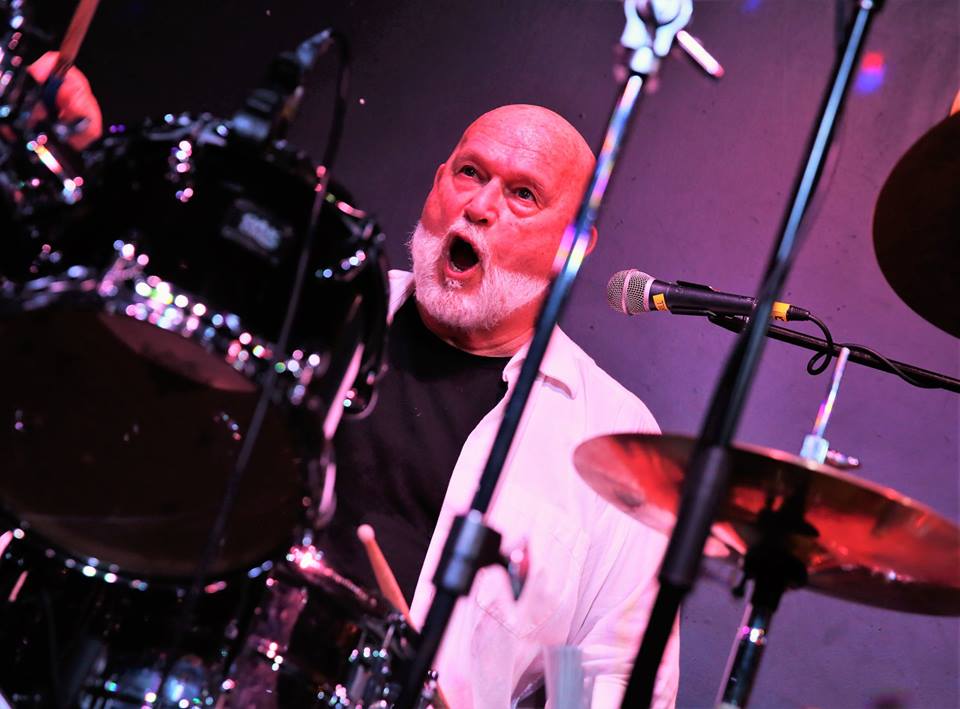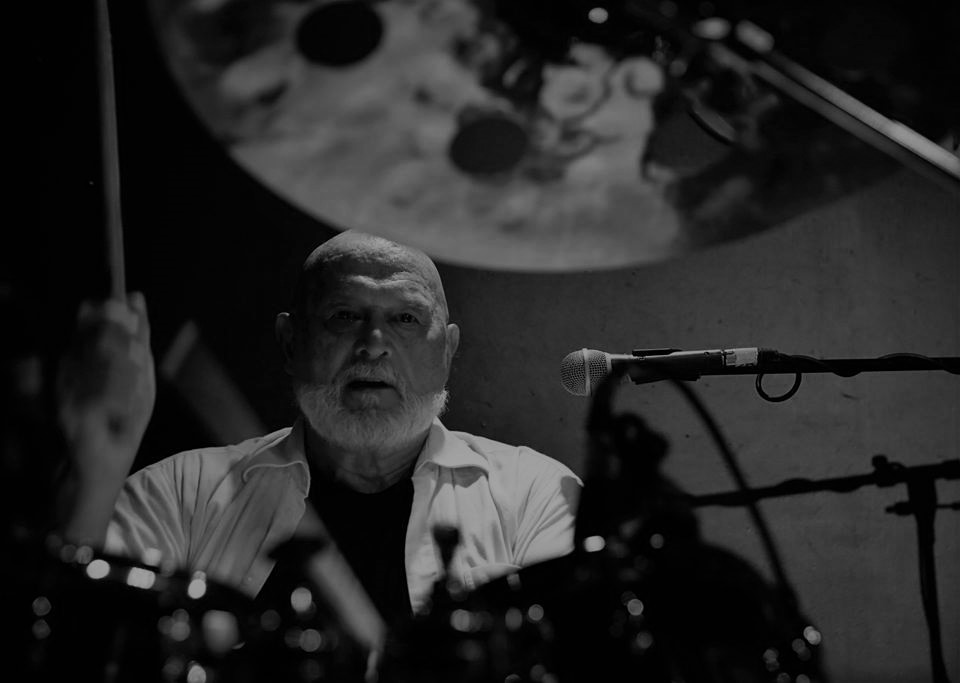Drummer Jerry Mercer was born July 10, 1947, in Montreal. He joined his first band The Overtakers when he was twelve years old.
Jerry Mercer was legendary in the Canadian music scene long before he stepped into April Wine and powered that Montreal-based band to the top of the charts with albums including Electric Jewels, Stand Back, First Glance, Attitude, and the multi-platinum international hit, Nature of the Beast.

He is known as a soft-spoken, highly personable character whose larger-than-life onstage presence and devastating power ensure April Wine classics including Roller, Could Have Been a Lady, and Sign of the Gypsy Queen make their mark. He is proof that the combined power of tremendous talent and great personality is the key to success
Jerry Mercer Early Career
Jerry Mercer’s started in the music industry as a singer but quickly moved to drums while still a teenager. He played several different styles in his early years, including Latin and jazz, Jerry Mercer was the drummer for Trevor Payne and The Soul Brothers in the early 60s in Montreal.
He was soon spotted by René Angélil, who would eventually become the manager of an iconic singer Celine Dion. Under Angélil, Jerry played with a number of local bands before gaining membership in Les Baronets.
The band recorded three singles and two albums together between 1966 and 1969. Jerry Mercer also worked on sessions for various local pop stars including Clémence Desrochers, Ginette Reno, Claude Léveillée, Renée Claude Présentation, Pauline Julien, Donald Lautrec and many others. He also played on a number of local hit songs including Ginette Reno’s “Tout va trop vite” and Renée Claude’s classic “Le jour où la pluie viendra”.
Member of The Legendary Rock Group Mashmakhan
In 1969, Jerry Mercer became a member of the legendary rock group Mashmakhan. He replaced drummer Bobby Hachey who had just left the group after recording the hit song “Asphalt Mother”. Jerry participated in all subsequent album recordings and tours with Mashmakhan.
Mercer was also involved in manufacturing drums with a company he co-founded with Bill Hibbs called Monolith Drums. Briefly assuming the brand name “Solstice Drums”.
Mashmakhan was a Canadian rock band from Montreal, Quebec. During the 1970s, they became one of the most popular bands in Canada and won numerous awards. The name Mashmakhan means “The Society” or “The Clan” in Persian.
The band scored an international top 10 hit with their first single “Spaceship Races” but didn’t break through to pop stardom until their second release, the self-titled LP Mashmakhan.
The album peaked at #5 on the Canadian charts, with its memorable cover shot of the band surrounded by bubbles. “As The Years Go By” was released as a single and stayed on the pop charts for some 21 weeks reaching #2 in Canada and being named Billboard Magazine’s most-played Canadian hit of 1971. The song was performed by Jerry Mercer and Mashmakhan on The Dick Clark Special in 1972.

The song “Days When We Are Free” was used as the theme for CBC’s Hockey Night In Canada for many years and is considered a classic Canadian pop song. The band broke up in 1977 after the release of their last album “Party”. Their popularity was such that the band is still actively sought after for reunion performances and Jerry was always a part of these until his declining health sidelined him.
Jerry Mercer died April 26, 2010, of kidney failure at the age of 62. He will be remembered as one of Canada’s greatest drummers and as a true gentleman by those who were fortunate to have known him.




